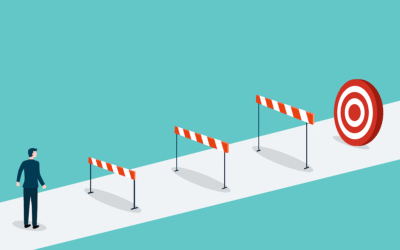In healthcare sales, every conversation counts. Imagine your sales team stepping into a meeting with a busy physician or a high-stakes buying group. They need more than just product knowledge—they need a consultative approach that builds trust.
Sales meetings are not just about selling a product. They’re an opportunity to understand the needs of healthcare professionals to convey how your solutions can make a difference.
Sales training in medical, pharmaceutical, and other healthcare industries requires a delicate balance between driving business results and maintaining strict regulatory compliance.
But how do you help your team master this balance? Here’s a comprehensive guide to the essential elements of a successful sales training program for healthcare, medical, and pharmaceutical sellers.
6 Things to Look for in a Healthcare Sales Training Program
The best sales training unlocks the full potential of your team. It equips your sales professionals with selling skills and strategies to engage buyers, build trust, and increase win rates.
Choosing the right sales training provider is one of the most important steps you can take in the pursuit of top-line revenue growth, because sales revenue drives the success of your organization.
Consider these essential components when evaluating a medical sales training program for your team.
1. Consultative Selling Approach
Any effective medical or pharmaceutical sales training program will offer a consultative selling approach. Consultative selling is a needs-based methodology that focuses on building a relationship with a customer or prospect, understanding their problems, and developing solutions to their challenges.
Instead of focusing on transactions, make sure your sales professionals can build long-term relationships beyond the initial sale and maintain their standing as trusted partners. Choose a provider that will train them on the primary skills of a consultative sales approach: asking open-ended questions and practicing active listening.
2. Instructor-Led Program
Instructor-led training—either in-person or virtual—provides valuable opportunities for real-time interaction, immediate feedback, and dynamic role-playing scenarios that help medical and pharmaceutical sales professionals practice handling complex clinical discussions and objections.
While on-demand virtual training offers flexibility and consistent content delivery that’s ideal for compliance topics and foundational knowledge, it may not fully replicate the nuanced learning that happens when sellers can practice consultative conversations with an experienced trainer and receive live coaching.
The optimal approach often combines both methods—using virtual training for sales training reinforcement and compliance, while leveraging instructor-led sessions for advanced selling skills, scenario practice, and building confidence in clinical discussions.
3. Experienced Facilitators
A quality facilitator can make an enormous difference in the overall success of your sales training program. The person teaching your sales team should have world-class training skills along with the industry experience to back up the content they’re teaching in the classroom.
Look for expert facilitators with healthcare, medical, and pharmaceutical sales experience.
4. Behavior and Soft Skills Expertise
Medical device and pharmaceutical companies must provide training that goes beyond sales basics to forge genuine connections with healthcare professionals. A sales professional’s communication skills can make all the difference when presenting innovative treatment options.
Learning how to recognize and adapt to a healthcare professional’s behavior style and communication preferences is critical. There are four main personality types (or buyer behavior styles) according to the DISC personality assessment.
Understanding each style is key to understanding the decision-making behavior of a prospect. With the right coaching and a personality assessment like DISC, your sales professionals can become experts at understanding their own behavior style and present information in a way the customer is most receptive to. Look for a program that offers this insight.
5. Evidence-Based Selling
Pharmaceutical sales professionals use clinical trial findings to fairly and ethically present the impact of their products. This helps medical professionals choose the optimal course of therapy for their patients.
To ensure their credibility, your sellers must have product knowledge beyond the features of your product, service, or medication. This requires training with a scientific foundation in disease states, treatment pathways and protocols, clinical trial data interpretation, medical terminology, and the competitive landscape.
6. Sales Training Reinforcement
Your sales training program should foster permanent behavior change and lasting sales performance improvement. If your sellers abandon their new skills shortly after the experience, you won’t be maximizing the ROI of your training investment.
Look for a provider that offers sales training reinforcement designed to help your sales professionals practice new skills while being guided by expert sales coaches and/or eLearning platforms with intelligent AI-powered video practice, feedback, and reinforcement.
Consultative Sales Training for Better Outcomes
Consultative selling is not just another sales methodology—it’s an essential approach for success in medical and pharmaceutical sales that aligns perfectly with healthcare’s evidence-based culture. When properly implemented, it transforms sales professionals from vendors into valued partners in improving healthcare delivery.
Find out how The Brooks Group’s customized sales training and development programs give new hires and current sellers the consultative selling skills they need to be successful.



